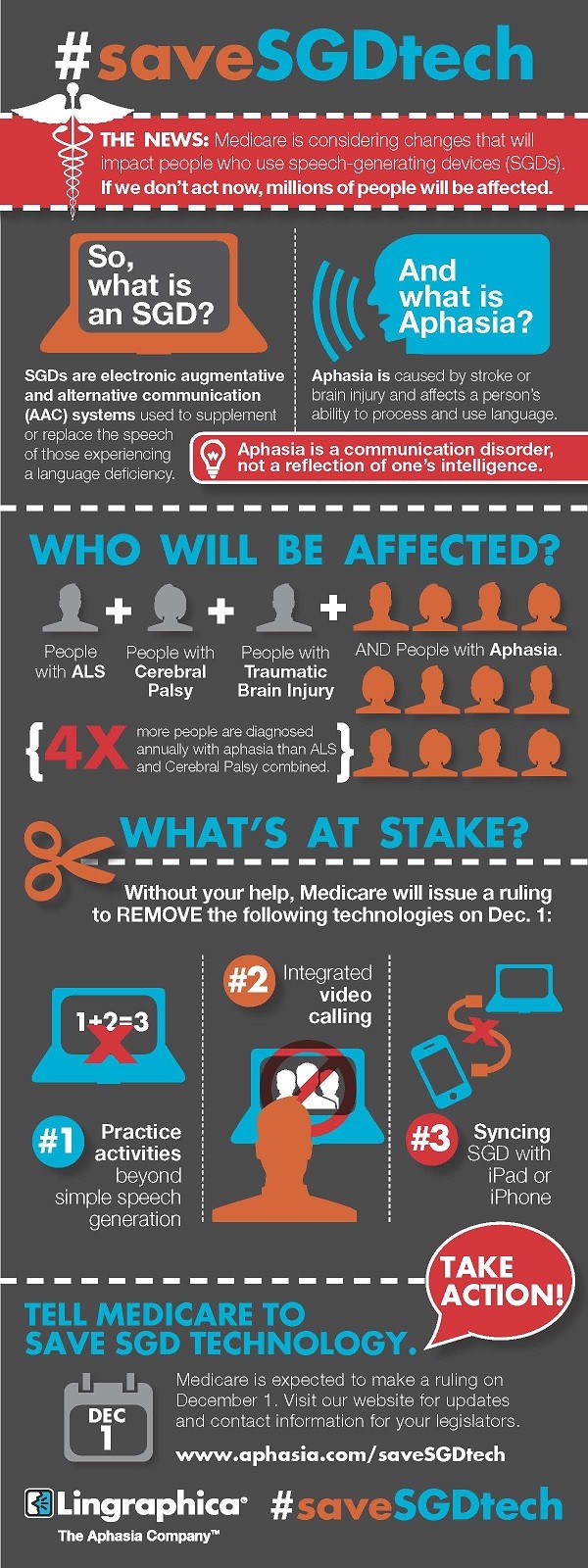Guest Opinion: Time to Take Action to Protect Advances in Speech-Generating Device Technology, Princeton Firm Says.
For the past decade, Princeton-based Lingraphica has specialized in providing speech-generating devices (SGDs) for adults with aphasia, a communication disorder that affects a person’s ability to process language. This unique technology allows individuals to communicate through a dedicated speech-generating device customized to their needs.
Recent headlines have indicated that Medicare wants to limit coverage for this device for individuals with aphasia, ALS, cerebral palsy, traumatic brain injury and other neurological disorders.
These headlines are correct. Medicare is reviewing a rule change that would dramatically reduce the functionality of SGDs.
As a longtime manufacturer of SGDs, and a committed advocate for adults with aphasia and verbal apraxia, Lingraphica works hard to educate and stand up for those with language disorders caused by strokes or other neurological injuries. But we want to set the record straight on what Medicare’s ruling, expected on December 1, would mean for these devices.
Who Will Be Affected
Medicare is proposing changes that would limit the functionality of SGDs and reverse the software advances made in the past decade. The potential changes to SGD technology would impact thousands.
What’s at Stake
In the past 10 years, we have added numerous features to our devices. Three specific features are at risk; they include integrated video calling, syncing, and practice and communication activities. Each of these features serves a specific function for the device user.
· Practice and communication activities allow SGD users to not only communicate their needs, but also to practice their communication skills. Research shows that this additional functionality aids recovery and communication, while at the same time increasing the overall adoption rates and usage of SGDs.
· Integrated video calling, found in our AllTalk model, allows a device user to place video calls from within the device’s speech-generating software. This feature allows SGD users to communicate with their loved ones. Removing this feature could mean stripping a device user of a vital communication lifeline.
· Syncing conversational phrases to a mobile device is also at risk. This advanced technology allows users to sync their most commonly used phrases on their AllTalk SGD with a lighter, more mobile iPhone or iPad via our SmallTalk app. While simple, this feature is widely used by many mobile and active adults.
These three features are at risk because Medicare believes that they reach beyond the current definition of a dedicated SGD. Medicare wants this functionality removed from our devices in order for us to keep our payment eligibility. We believe that these features provide crucial tools for adults who are working hard to communicate with their family and friends.
Take Action
We need the public’s help. We presented the above argument to Medicare in numerous letters and meetings, but Medicare needs to hear from technology advocates, people with speech deficits and clinicians who treat adults and recommend SGDs. The stories of patients who can communicate because of an SGD are powerful. We want Medicare to know and understand this struggle, so that SGD functionality will be protected now and in the future.
We need residents to contact their local congressional representative and ask them to protect SGD functionality and continue Medicare coverage for SGDs. Click here to find your representative’s contact information.
Our Promise
We will continue to work diligently to address the potential changes in SGD technology before Medicare issues a final ruling on December 1. We feel strongly that our devices provide important functionality that aids speech generation and communication for adults with aphasia and other language disorders. We hope you will join us in this effort.
Michele Hart-Henry is the vice president of innovation, sales and marketing for Lingraphica, a Princeton-based health-care technology company. In her role, she oversees the company’s sales and marketing functions as well as its business development opportunities. Michele has more than 20 years of health-care communications and marketing experience, and holds a bachelor’s degree from Penn State University and a master’s degree from Notre Dame University of Maryland.


